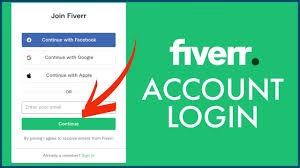Google Rank If you’ve ever wondered how websites get to the top of Google’s search results, you’re not alone. Google Rank is the holy grail of online visibility. Whether you’re a business owner, a blogger, or a digital marketer, understanding how Google ranks pages can be the difference between being seen or being buried. Let’s dive into everything you need to know to master Google Rank.
What is Google Rank?
The Basics of Search Engine Ranking
Google Rank refers to where a website or web page appears on Google’s search engine results pages (SERPs) for a specific query. The higher the rank, the more visibility, clicks, and traffic you get. Page one is prime real estate—less than 1% of users click on results from the second page. Yikes.
Why Google Rank Matters for Your Website
It’s simple: better rankings lead to more traffic. More traffic often leads to more conversions, sales, or engagement—whatever your goal is. It’s the lifeblood of digital success. Without a good rank, even the most beautiful website is invisible.
How Google’s Algorithm Works
The Evolution of Google’s Search Algorithm
Google’s algorithm isn’t static—it’s constantly changing. In fact, Google updates its algorithm thousands of times per year, but only a few major updates make waves in the SEO community.
Major Google Algorithm Updates
Panda
Launched in 2011, Panda penalized low-quality, thin content and content farms. It put a spotlight on originality and depth.
Penguin
In 2012, Penguin cracked down on spammy backlinks and keyword stuffing. It emphasized link quality over quantity.
Hummingbird
Released in 2013, this update helped Google understand intent behind search queries, not just keywords.
RankBrain
Google introduced machine learning in 2015 with RankBrain. It focuses on user behavior and search satisfaction.
BERT
Launched in 2019, BERT helps Google understand natural language better, especially nuances in phrasing.
Top Ranking Factors for Google
Google uses over 200 ranking signals, but some are more important than others. Here are the heavy hitters:
Content Quality and Relevance
Google wants content that satisfies the searcher’s intent. Long-form, original, well-structured content wins.
Backlinks and Authority
Backlinks are like votes of confidence from other websites. The more trustworthy sites that link to you, the more Google trusts your site.
Mobile-Friendliness
With most searches happening on mobile, a responsive, mobile-optimized site is a must.
Page Speed
A slow-loading website frustrates users. Google prefers fast, smooth experiences.
User Experience and Engagement
If people stay on your site, interact with it, and don’t bounce right away, that’s a positive signal.
Technical SEO Elements
Things like site structure, schema markup, HTTPS, XML sitemaps, and robots.txt all influence crawling and indexing.
On-Page SEO Strategies to Improve Google Rank
Keyword Research and Placement
You can’t rank if Google doesn’t know what your content is about. Use tools like Ahrefs, SEMrush, or Ubersuggest to find high-volume, low-competition keywords.
Optimizing Titles, Headers, and Meta Descriptions
Your title tag is your first impression. Use your target keyword naturally and make it compelling.
Internal Linking Strategies
Linking between your own pages helps Google understand your site’s structure and keeps users browsing.
Image Optimization
Use descriptive filenames, alt tags, and compress images for faster loading.
Off-Page SEO Techniques
Building High-Quality Backlinks
Get backlinks by guest posting, creating shareable infographics, and forming partnerships with other sites.
Social Signals and Brand Mentions
While not direct ranking factors, social proof and engagement can increase traffic and visibility.
The Role of Content in SEO
Creating Evergreen Content
Evergreen content stays relevant over time. Think “how-to” guides, ultimate resource lists, and in-depth tutorials.
The Power of Blogging
Regular blogging gives Google more content to index and keeps your website fresh and updated.
Video and Visual Content for Ranking
Videos increase dwell time and user engagement. Embedding YouTube videos (owned by Google!) is a smart move.
How to Measure Google Rank
Google Search Console
This free tool from Google shows which queries bring people to your site, your average position, and click-through rates.
SEO Tools Like Ahrefs, SEMrush, Moz
These tools provide more detailed insights into your keyword rankings, backlinks, and competitors.
Common Mistakes That Hurt Your Google Rank
Keyword Stuffing
Overloading your content with keywords makes it unreadable and triggers penalties.
Thin Content
Pages with little to no valuable content get devalued quickly.
Ignoring Technical SEO
Broken links, duplicate content, and poor site architecture can all hurt your visibility.
Not Updating Content Regularly
Outdated content can fall in rankings over time. Keep things fresh and relevant.
How Long Does It Take to Rank on Google?
The SEO Timeline Explained
SEO is a marathon, not a sprint. For most websites, it takes 3–6 months to start seeing meaningful results. Competitive niches may take longer.
Local SEO and Google Rank
Optimizing for “Near Me” Searches
Use local keywords, create local content, and ensure NAP (Name, Address, Phone Number) consistency.
Google My Business Optimization
Claim and optimize your GMB profile, get reviews, and post updates regularly for local visibility.
The Future of Google Ranking
AI, Voice Search, and the Changing Landscape
Voice searches are longer and more conversational. Optimizing for natural language and question-based queries is essential.
What Webmasters Should Focus on Going Forward
Focus on helpful content, user satisfaction, and technical health. Keep adapting as algorithms evolve.
Conclusion
Cracking the Google Rank code isn’t about tricking the algorithm—it’s about giving users exactly what they’re looking for. Focus on quality content, great user experience, and smart SEO strategies. Rankings don’t come overnight, but with consistency and patience, your site can rise to the top. Ready to rank? Let’s do this.
FAQs
1. What is the fastest way to improve my Google rank?
Optimize your existing content, build quality backlinks, and improve your site speed. These usually bring the quickest wins.
2. Does domain age affect Google ranking?
Yes, older domains with a clean history can have a slight edge, but content quality and backlinks matter more.
3. How often should I update my content to maintain rankings?
Ideally, review and update key content every 3–6 months to stay competitive and relevant.
4. Can social media help with Google rankings?
Indirectly, yes. Social media can drive traffic and visibility, which may lead to backlinks and brand signals.
5. Is paid advertising a ranking factor in Google?
Nope. Paid ads don’t influence organic rankings, but they can drive traffic while your SEO kicks in.






